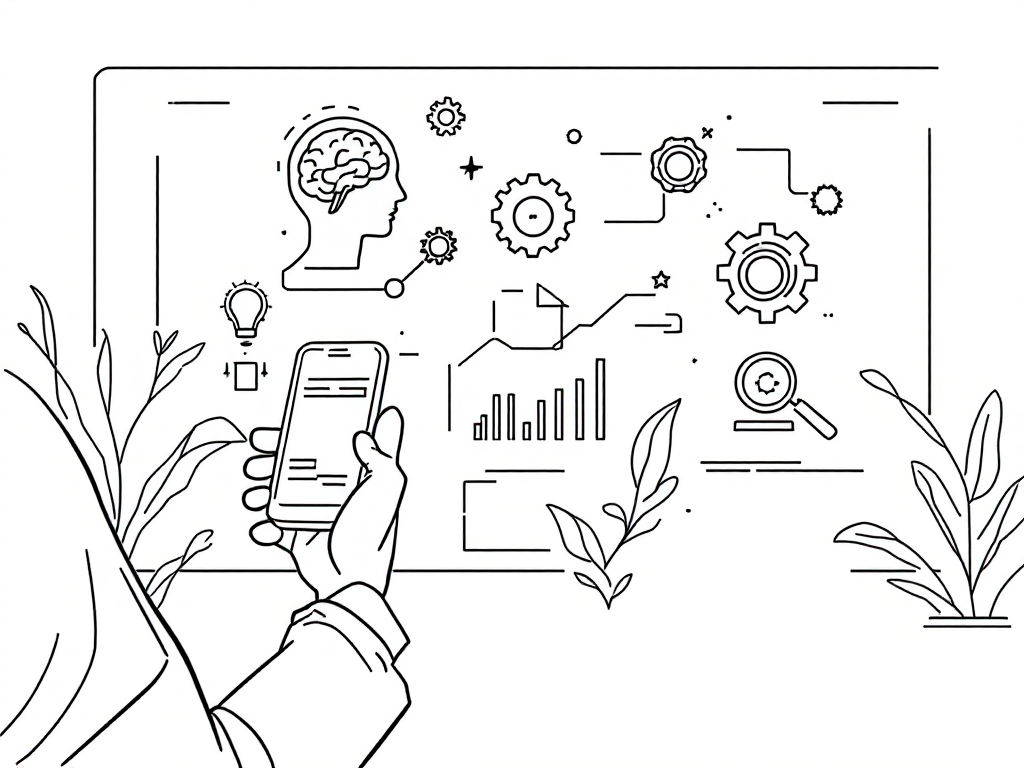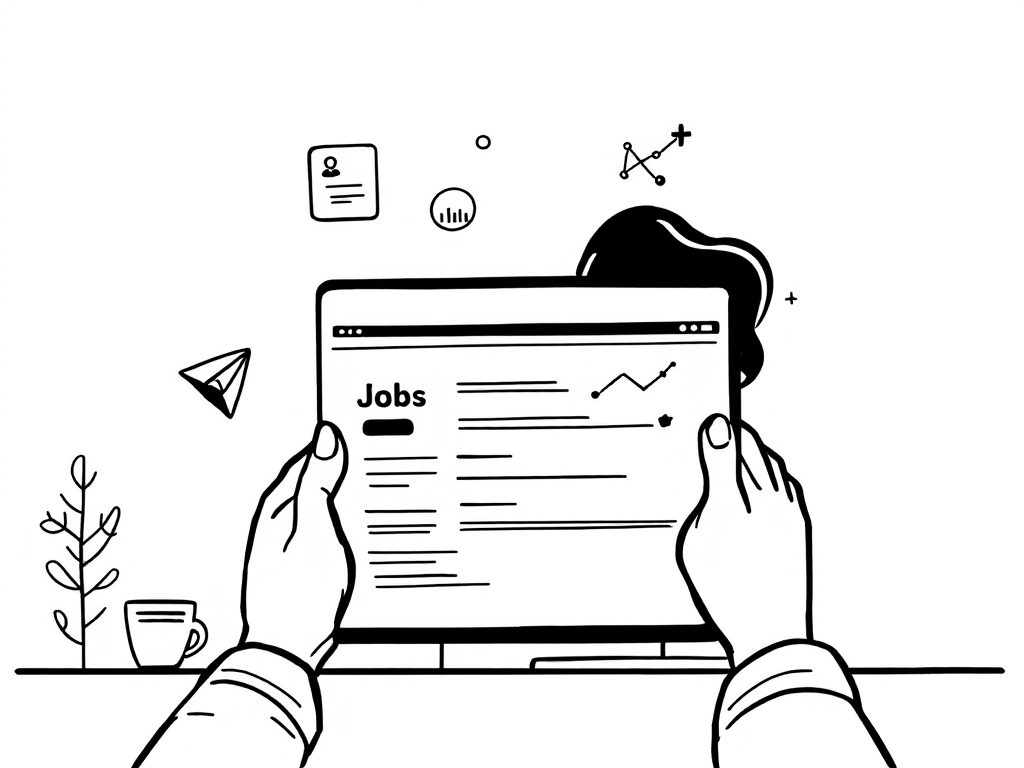
How AI Job Search Tools Transform Your Career Hunt
A Job Seeker’s Dilemma: When the Search Gets Tough
Alex stared at his inbox, the glow of the screen almost mocking him. For months, he’d been applying to jobs, tweaking his resume, and crafting cover letters, only to receive the same dispiriting response: silence or polite rejection. The job market was fiercely competitive, and with each unanswered application, Alex’s motivation waned. He wondered if he was missing some hidden trick, some secret that modern job seekers had already discovered. As frustration mounted, a friend mentioned a new category of tools—AI job search tools—that promised to change the job hunt game. Skeptical but intrigued, Alex decided to see if these tools could be the game-changer he desperately needed.
In today’s digital-first world, the stakes for career growth have never been higher. With economic uncertainty and rapid shifts in workplace demands, many professionals like Alex are turning to technology in hopes of gaining an edge. AI job search tools are rapidly emerging as a potential solution, offering not just efficiency, but the promise of smarter, more targeted job hunts. But do they really live up to the hype?
AI in Action: How Job Search Tools Reshape the Process
Navigating Algorithms and Automation
Imagine facing dozens of job boards, thousands of listings, and application deadlines piling up—it’s a scenario many job seekers know all too well. For Alex, the experience was overwhelming. He found himself endlessly scrolling, applying to jobs that seemed like a toss-up, and receiving little feedback. That’s where AI job search tools entered the picture. These platforms, such as LinkedIn’s AI-powered job recommendations or Jobscan’s resume optimization, harness sophisticated algorithms to match candidates with roles that fit their skills, experience, and preferences.
According to a 2023 report by Gartner, over 35% of job seekers in North America used some form of AI-driven job search assistance last year, a number that continues to climb as these tools become more accessible. AI can sift through massive datasets in seconds, filter out irrelevant postings, and even highlight opportunities that might have been overlooked by traditional search methods.
Personal Experience with AI Assistance
When Alex signed up for an AI job search platform, he quickly noticed a shift. The tool prompted him to upload his resume and answer a few questions about his goals. Within minutes, it generated a shortlist of jobs tailored to his background—no more generic listings. The platform also analyzed his resume, suggesting keyword changes and formatting tweaks based on the latest applicant tracking system (ATS) trends.
One standout feature was automated interview scheduling, integrated with his calendar. This not only reduced the back-and-forth but also helped Alex prepare for interviews by suggesting common questions and providing feedback on his responses. The AI’s ability to streamline repetitive tasks freed Alex to focus on what really mattered: preparing for roles that genuinely fit his strengths.

Reflecting on this new approach, Alex realized that AI tools didn’t just save time—they changed his mindset. The process felt more strategic and less like a numbers game. Still, he faced new challenges, like learning to trust AI recommendations without losing his personal touch. The lesson? While AI job search tools offer powerful advantages, using them effectively requires a thoughtful balance of automation and human judgment.
Unlocking Success: Best Practices and Pitfalls of AI Job Search
Actionable Tips for Maximizing AI Tools
- Tailor Your Resume for Each Application: Many AI tools offer resume optimization by scanning job descriptions and suggesting improvements. Alex found that regularly updating his resume with relevant keywords led to a 40% higher response rate.
- Leverage AI Job Matching: Set clear preferences and goals within the tool. This helps the algorithm deliver more accurate job suggestions. Alex specified his preferred industries and locations, which cut irrelevant listings by half.
- Use Interview Prep Features: Platforms like Indeed’s AI-based mock interview tools provide tailored practice questions and instant feedback, building confidence for real interviews.
- Keep Your Profile Updated: Regularly refresh your information, skills, and certifications. AI tools prioritize active profiles and recent achievements.
- Set Alerts and Notifications: Enable real-time notifications so you never miss a new opportunity that matches your profile.
Common Mistakes to Avoid
- Over-reliance on Automation: Don’t apply blindly to every AI-suggested role. Personalize your outreach and do your own research.
- Ignoring Personalization: AI tools are powerful, but they work best when combined with your unique insights and network connections.
- Trusting Every Suggestion Blindly: Algorithms aren’t perfect—always review job matches for quality and relevance.
- Neglecting Soft Skills: AI can optimize your resume, but it’s up to you to showcase your communication and interpersonal strengths in interviews.
Key Takeaway: AI job search tools work best as partners, not substitutes. Stay engaged, apply your human judgment, and use technology to amplify your unique strengths.
A Breakthrough Moment: Landing the Right Job with AI
From Frustration to Success
After integrating AI tools into his job search, Alex noticed a measurable shift. Within three weeks, he received more interviews than he had in months. One particular job stood out—a role at a fast-growing tech company that matched his skillset perfectly. The AI tool had flagged this job as a strong fit, and its automated resume tailoring feature helped Alex highlight exactly what the employer wanted.
Measurable Impact of AI Tools
When Alex landed an interview, he used the AI’s mock interview module to practice industry-specific questions. He walked into the interview prepared, confident, and able to articulate how his skills matched the position. The result? He received a job offer within days. According to LinkedIn’s 2024 Workforce Report, candidates using AI-enhanced job search tools are 32% more likely to receive interview callbacks compared to those using traditional methods.
For Alex, the breakthrough was not just landing a job, but learning how to leverage technology for continuous growth. He now approaches his career with a toolkit that keeps him agile and ready for future opportunities.

Interview Edge: Showcasing AI Savvy to Employers
Practical Q&A for Job Interviews
- Q: Can you describe how you’ve used AI in your job search process?
A: Yes, I leveraged AI job search tools to tailor my resume for each application and identify roles that best matched my skills. This approach helped me secure more interviews and target positions that aligned with my career goals. - Q: How do you stay updated with new technologies in job searching?
A: I regularly explore advancements in AI-driven platforms and integrate new features, such as automated interview prep and job matching, to enhance my search strategy.
Resume and Interview Framing Tips
- Highlight Digital Fluency: Add a “Digital Skills” or “Job Search Technology” section to your resume, noting specific tools (e.g., Jobscan, LinkedIn AI, Indeed AI Interview Prep).
- Use Quantifiable Results: Reference improvements in interview rates or job matches due to AI tools.
- Tell a Story: In interviews, share anecdotes about how AI tools helped you overcome challenges, demonstrating initiative and adaptability.
- Show Continuous Learning: Employers value candidates who embrace change. Mention how you keep your skills current with emerging technologies.
Today’s employers seek candidates who are not just tech-literate, but also proactive and resourceful. Demonstrating experience with AI job search tools can set you apart, signaling your readiness for the digital-first workplace.
Pros & Cons of AI Job Search Tools
| Pros | Cons |
|---|---|
|
|
FAQs About AI Job Search Tools
What are AI job search tools and how do they work?
AI job search tools are digital platforms that use artificial intelligence to streamline and enhance the job search process. They analyze your resume, preferences, and goals to match you with suitable job openings, optimize your applications, and provide personalized interview preparation. Examples include LinkedIn’s AI recommendations and Jobscan’s resume optimization algorithms.
Are AI job search tools better than traditional methods?
AI tools offer significant advantages in efficiency and targeting, often leading to higher interview rates. However, they are most effective when combined with traditional networking and personal outreach. According to recent industry reports (2024), candidates who blend AI tools with personal efforts achieve the best results.
Can AI tools help with resume writing and interview prep?
Yes, most AI platforms offer resume analysis, keyword suggestions, and automated formatting to improve ATS compatibility. Many also include mock interview modules, question banks, and instant feedback to help you prepare confidently.
Are there risks or downsides to using AI job search platforms?
While AI tools are powerful, they are not infallible. Risks include potential algorithmic bias, over-reliance on automation, and privacy concerns related to sharing personal data. It’s important to use these tools as supplements to—not replacements for—personal judgment and networking.
How do I choose the right AI job search tool for my career?
Consider your goals, industry, and preferred features. Look for platforms with strong user reviews, transparent privacy policies, and tools tailored to your field. Many offer free trials or demos, so test a few to see which aligns best with your needs.
In summary: AI job search tools are transforming how professionals find and land jobs, offering efficiency and personalization. By combining technology with your unique skills and insights, you can navigate the modern job market with more confidence—and success—than ever before.